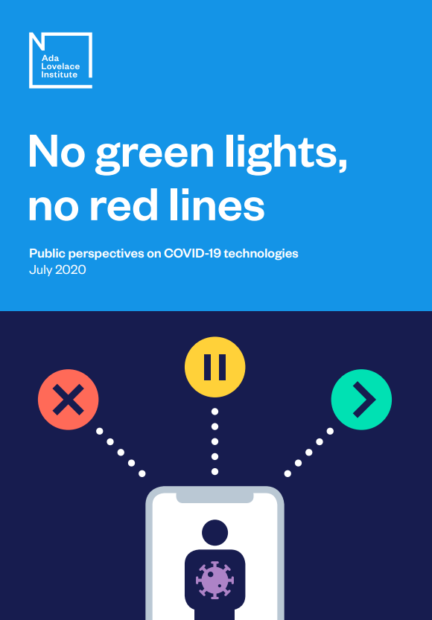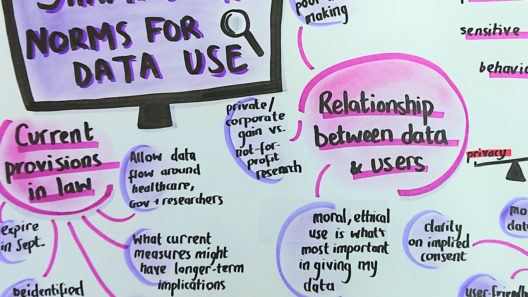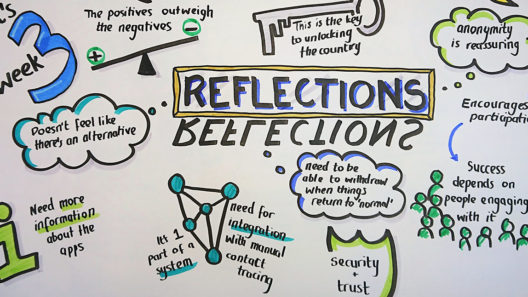No green lights, no red lines
Public perspectives on COVID-19 technologies
Lessons to assist Government and policymakers navigating difficult dilemmas when deploying data-driven technologies to manage the pandemic
24 November 2020

No green lights, no red lines: Public perspectives on COVID-19 technologies takes lessons from Ada Lovelace Institute public engagement to assist Government and policymakers navigating difficult dilemmas when deploying data-driven technologies to manage the pandemic, and when judging what risks are acceptable to incur for the sake of greater public health.
To support technology developers and policymakers to design tools that anticipate the preferences and mitigate the legitimate concerns of the public, we have pulled relevant insights from three public deliberation projects, identifying six lessons that should be brought to bear on the design and deployment of COVID-19 technologies:
- Trust isn’t just about data or privacy. To be trusted, technology needs to be effective and be seen to solve the problem it is seeking to address.
- People’s experiences and expressions of identity matter – and are complex. Categorising individuals can be reductive and disempowering.
- Public health monitoring and identity systems are seen as high-stakes applications that will need to be justified as appropriate and necessary to be adopted.
- Tools must proactively protect against errors, harms and discrimination, with legitimate fears about prejudice addressed directly.
- Apps will be judged as part of the system they are embedded into – the whole system must be trustworthy, not just the data or the technology.
- The technologies under discussion are not viewed as neutral. They must be conceived and designed to account for their social and political nature.
These lessons from the public offer neither clear green lights nor neat red lines, but developing and deploying new technologies is not neat or easy, especially in a crisis.
It is clear from the nuance and consideration expressed by these informed publics, organised in this report, that citizens have the capacity to weigh these challenging issues.
Politicians, policymakers and technology developers will benefit by designing apps that consider the preferences and legitimate concerns of members of the public detailed here.
To create systems that work for the public, these challenges and concerns need to be acknowledged and explored, rather than discounted and silenced, and complexities must be designed in.
Policy impact
Even before its findings and recommendations have been fully reported, insights from the Council have drawn attention from key stakeholders, including policymakers, regulators, legal researchers, technology developers and law enforcement bodies.
These stakeholders have attended workshops as experts and observers, and have expressed the value that the Council’s deliberations will have for shaping and influencing action on biometrics policy and practice.
The Council members also reported the value of participating in the process, commenting that they enjoyed taking part, were well-informed through the debates and felt as though their perspectives mattered.
Related content

Rapid, online deliberation on COVID-19 technologies
Rapid, online deliberation with 28 members of the public on COVID-19 exit strategies.

A rapid online deliberation on COVID-19 technologies: building public confidence and trust
Considering the question: ‘What would help build public confidence in the use of COVID-19 exit strategy technologies?’

Deliberating rapidly and online about COVID-19 technologies
The second of two events sharing what we learned from a rapid online deliberation project to explore public attitudes to COVID-19 exit strategies.